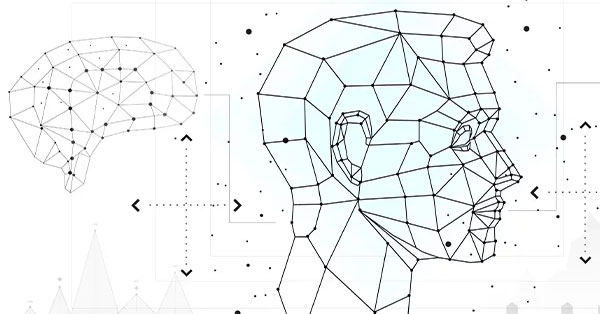Artificial Intelligence (AI) in talent acquisition holds the promise of doing more, better, faster, and with less. It has become the holy grail of recruiting sidekicks—technology that makes TA teams recruit faster and more successfully, while delivering a candidate experience that bolsters your employer brand.
There is nothing artificial about the efficiencies you’ll realize once you deploy AI-powered recruiting solutions. But to get there, you and your entire team must separate AI “mythconceptions” from truths, understanding what AI is—and what it isn’t.
Myth: Recruiters Will Become Obsolete
AI technology will not replace your recruiters, but rather augment their efforts, elevating your team’s value and business impacts. A recent survey by Forbes Insights found that 87% of senior executives believe that AI is important to achieving overall business objectives. And 67% of hiring managers and recruiters surveyed by LinkedIn say AI is saving them time.
The reality is that recruiters and managers who embrace the automation, analysis, and insights that AI provides will have better job security as well as a more strategic role to play within their organization.
“AI can be an overwhelming concept if your starting mindset is that it’s attempting to replace entire teams or must be used in every step of your process on day one,” says Brianne Thomas, Head of Recruiting at Jobvite. “You should be excited by the potential of AI to take away repetitive, low-impact work and eliminate process-driven bias so that your recruiters are free to spend their time on the high-impact work.”
There’s a correlation between recruiters being more valuable to their organizations and their use of AI. According to research from Ben Eubanks, Lighthouse Research & Advisory, “recruiting leaders that think AI will make recruiters more valuable are twice as likely to prioritize the development of skills like building consultative relationships with hiring managers, strengthening analytical skills, and leveraging technology to drive efficiency.”
Learning about AI and how it may help your TA program is a win-win for both the business and your team. According to Harvard Business Review, “Over the next decade, AI won’t replace managers. But managers who use AI will replace those who don’t.”
Fact: AI Improves Quality-of-Hire
In our latest Recruiter Nation Survey, we found recruiters are focusing more on quality-of-hire in 2021, and less on time-to-hire. Having AI automate the repetitive tasks of screening, scoring, and matching frees recruiters to spend their valuable time and resources on identifying, interviewing, and hiring the right talent.
“Automation and AI have the power to completely alter the recruiting process for the better. With AI-powered technology, recruiting teams can save money and time, while driving real business outcomes such as achieving D&I goals and reducing time-to-fill,” says Aman Brar, CEO of Jobvite.
In Jobvite’s case, AI is woven throughout the entire talent acquisition platform. This allows AI to learn, adapt, and evolve with the entire candidate journey.
Myth: AI Leads to Bias
Jobvite data scientists work to understand how algorithms may introduce bias and how to protect diverse classes of job seekers. In order to identify bias and mitigate its effects, Jobvite helps its customers ask:
- How does our organization approach avoiding bias?
- How do we take action based on what the data is saying to us?
- What data do we have?
“The challenges of diversity and inclusion cannot be solved by technology alone,” said Brar. “Our approach provides a mix of services and technology to help our customers address the impact of conscious and unconscious bias in the recruiting process.”
By equipping our customers with tools like Candidate Matching, Candidate Engagement Scoring, and Bias Blocker™, Jobvite is easing the pressures of monotonous daily tasks and providing avenues to accelerate hiring while also reducing bias.
- Jobvite Candidate Matching lets recruiters quickly and easily identify which candidates are most suited for each open position based on skills match and career trajectory.
- Candidate Engagement Scoring helps determine a candidate’s hiring-readiness by revealing how interested a candidate is in your employer brand, the open role, as well as their overall level of engagement with your company.
- Bias Blocker™ by Jobvite automatically hides identifiable information you wish to redact from a candidate’s resume before hiring manager review.
- Job Description Grader by Jobvite leverages AI, data analytics, and industry benchmarks to identify potential bias in job descriptions – for free.
“Jobvite’s objective to build a data-first company has allowed our data science team to quickly develop algorithms that reflect the unique and changing preferences of a recruiter,” said Morgan Llewellyn, PhD, Chief Data Scientist at Jobvite.
And this isn’t by accident. Building a more diverse workforce begins with how your employer brand attracts and connects with job seekers of all ages, races, ethnicities, genders, identities, sexual orientations, locations, and abilities. Conscious and unconscious hiring bias have deep roots; However, leveraging a unique combination of technology and services alongside a proper D&I Strategy for 2021, makes it possible for talent teams to generate diverse talent pipelines.
Fact: AI will Empower your Team to Reach Success in 2021
AI is one of the fastest growing assets to technology platforms. It increases the speed with which tasks can be completed while improving the quality of outcomes. Enabling recruiters to spend more time focusing on efforts that build deeper relationships and connections (i.e., the fun stuff) not only optimizes your processes, but it promotes recruiter happiness and retention for your organization. Nothing scary about that!
Want more information on how AI can help you recruit with intelligent insights, hire with more confidence, and show measurable results? Start the conversation today.




